September, 2025 Edition
Industry Overview – HVAC, Plumbing, and Electrical
M&A activity in HVAC / plumbing / electrical remains attractive to buyers as these businesses generate recurring, recession-resilient cash flows, have low capital intensity, and are highly fragmented, which is ideal for private equity (PE) roll-ups and strategic consolidation. Deal volume is uneven across 2024–2025 (macro headwinds slowed some middle-market dealmaking), but sector-specific activity, including platform buys and add-ons, has stayed resilient as sponsors and strategics hunt durable cash flows and predictable service revenues.

Key Market Drivers
Recurring revenue + defensive demand: Residential and commercial service contracts, maintenance agreements, and emergency service work create steady cash flow streams that appeal to PE and corporate buyers. This recurring element supports higher valuation multiples vs. one-off jobs.
Fragmentation = roll-up opportunity: Local independents dominate markets; consolidators can add scale quickly via platform acquisitions and bolt-on add-ons to increase geographic coverage, procurement leverage, and centralized back-office functions.
Regulatory & retrofit demand: Efficiency and electrification trends (heat pumps, EV charging support, building electrification) and tightening codes drive retrofit/upgrade work, expanding addressable markets for M&A targets with retrofit capabilities.
Capital environment and timing: Interest-rate moves and credit availability materially affect deal economics. Falling rates, along with greater debt availability, improve leverage-friendly deals and spur exits; when rates are elevated, buyers are more selective and rely more on equity and earnouts.

Valuation and Deal Structure Trends
Multiples remain healthy for high-quality recurring businesses: Best-in-class residential/commercial service providers with strong management teams and recurring contracts command premium SDE/EBITDA or revenue multiples relative to one-off specialty contractors. (Sector multiple ranges vary by size, margin profile, and growth.)
Platform + add-on playbook: Buyers prefer to acquire a platform with scalable operations and pursue smaller tuck-ins to quickly build density and unlock cost synergies. Many deals structure incentives (earnouts, roll equity) to retain founders and tech-savvy operators.
Financing mix evolving: With credit conditions improving intermittently in 2025, some buyers are returning to leverage, but many deals still lean on sponsor equity, seller notes, or contingent consideration when debt is pricier or underwriting is more conservative.

What Drives up Valuations
- Recurring maintenance contracts and commercial accounts
- Strong technician networks, documented SOPs, and scalable dispatch/ERP/CRM systems
- High gross margins from service + parts mix, and demonstrated ability to expand into adjacent service lines (plumbing + HVAC + electrics bundled offerings)
- Proven recruiting and training programs (tech labor is the scarcest, highest-value asset)
- Data / customer analytics, subscription-type maintenance programs, or fleet accounts
SBA 7(a) Loan Updates
A heads up, as you’re looking at trades businesses with SBA financing, — the SBA 7(a) program has some specific requirements when it comes to licensing:
- Licenses/Permits: If the business requires a professional or trade license, the borrower (or a qualifying individual who will manage day-to-day operations) must provide proof of licensure before disbursement.
- Management Experience: If the buyer doesn’t hold the license, they must employ someone who does, with clear evidence of their authority and role in the business.
- Standby Agreements: If the seller is staying on temporarily to meet licensing requirements, SBA requires a standby agreement and a written transition plan.
- Franchise/Contractor Models: For licensed trades operating under a franchise or contractor network, the SBA must review and approve agreements to ensure compliance.
- Change of Ownership: SBA requires confirmation that all regulatory approvals (including licensing transfers or new applications) will be completed at or before closing.
- Ongoing Eligibility: Licenses must remain valid throughout the loan term – SBA lenders are instructed to verify this during closing and in periodic reviews.
General Licensing Requirements:
- The business must have all required state and local licenses in place and current.
- The buyer (or a qualified manager) must hold the license if it’s legally required to operate.
- If licenses aren’t transferable, the buyer needs to secure their own before closing.
- The SBA won’t fund until proper proof of licensing is provided.
The big takeaway: the SBA is strict on making sure a business that requires a license has one tied to the new ownership before they’ll fund. This is especially common in trades and contractor-type businesses.
On a Lighter Note – The Dog Clause
In a recent lower middle-market transaction, a media agency acquired a competitor whose branding was focused around dogs. The company owner based the designs off of his black labrador retriever, who even had a photo on the website with the title “Chief Happiness Officer” written underneath. As the negotiations began, the seller mentioned that he would still like to bring his dog by the office every once in a while as he was an unofficial mascot and the dog loved walking around the office. The buyer took this as sentimental talk, which often happens when selling a business, but as due diligence continued it became clear that he did not want to sell his company unless his dog could still visit the office after the ownership transition. The buyer sent a draft of a purchase agreement only to have it returned with an added clause stating “The Purchaser agrees that the Seller’s Labrador retriever shall have access to the office premises during business hours for the duration of his natural life.” It was made clear that the deal would fall through without the addition of this clause, and so it was written in, and the black lab was free to roam the offices whenever he pleased.
Moral of the story
Even the most seemingly insignificant points can blow up a deal because even if something is not important to you, it may mean the world to the person on the other end of the transaction.

On This Day – Notable Mergers & Acquisitions in August
August 1
- 2025 – Bosch acquires the residential and light-commercial operations of Johnson Controls, Inc., including their joint venture with Hitachi for $8 billion. https://www.achrnews.com/articles/165124-bosch-acquires-jcis-residential-and-light-commercial-business-for-8-billion
- 2023 – Electriq Power, a supplier of intelligent energy storage for homes and businesses acquires TLG Acquisition One for $495 million in order to facilitate installation of solar energy and intelligent energy solutions. https://www.mintz.com/insights-center/viewpoints/2151/2023-08-28-energy-sustainability-ma-activity-august-2023
August 4
- Veritas Capital closes the merger of Coronis Health and MiraMed, two providers of revenue cycle management products. https://www.pehub.com/veritas-completes-merger-of-rcm-firms-coronis-and-miramed/#:~:text=Veritas%20completes%20merger%20of%20RCM%20firms%20Coronis,Global%20Services.%20No%20financial%20terms%20were%20disclosed.
August 9
- 2022 – EMCOR Group Inc. acquires Gaston Electrical Co., LLC in order to expand their specialty construction and electrical services into the northeast. https://emcorgroup.com/investor-relations/press-releases/2022-news/emcor-group-inc-announces-acquisition-gaston-electrical-co-llc
August 15
- 2023 – Aldi announces their acquisition of Southeast Grocers, the parent company of Winn-Dixie and Harvey’s Supermarket. https://www.jaxdailyrecord.com/news/2024/mar/07/aldi-completes-acquisition-of-winn-dixie-parent-company-southeastern-grocers/
August 18
- 2021 – EQT Resource Company acquires Alta Resources, a supplier of natural gas, for $2.925 billion to expand their position in the Appalachian Basin. https://www.mintz.com/insights-center/viewpoints/2151/2021-08-18-energy-sustainability-ma-activity-august-2021
August 20
- 2024 – RESA Power, a power systems testing and transformer service company acquires High Voltage Electrical Services (HVES) in order to expand its footprint in NY. https://www.prnewswire.com/news-releases/resa-power-expands-into-the-new-york-capital-region-with-the-acquisition-of-high-voltage-electric-service-inc-302225978.html
August 28
- 2017 – Amazon acquires Whole Food Markets for $13.7 billion marking their leap into brick-and-mortar retail. https://s2.q4cdn.com/299287126/files/doc_financials/2020/ar/2019-Annual-Report.pdf
August 30
- 2019 – Power Vac LLC acquires Stain Electrical, a 75+ year old electrical contracting company in Wyoming, Michigan. https://www.caldergr.com/strain-electric-wyoming-mi-acquired-by-powervac-pillsman-peninsula-capital/
Topsail Capital Advisors is a sell-side Mergers & Acquisitions advisory firm focusing on mid-size to lower middle-market, privately held businesses throughout the US. Topsail fills the gap between Main Street business brokerage firms and the larger Investment Banking institutions.

